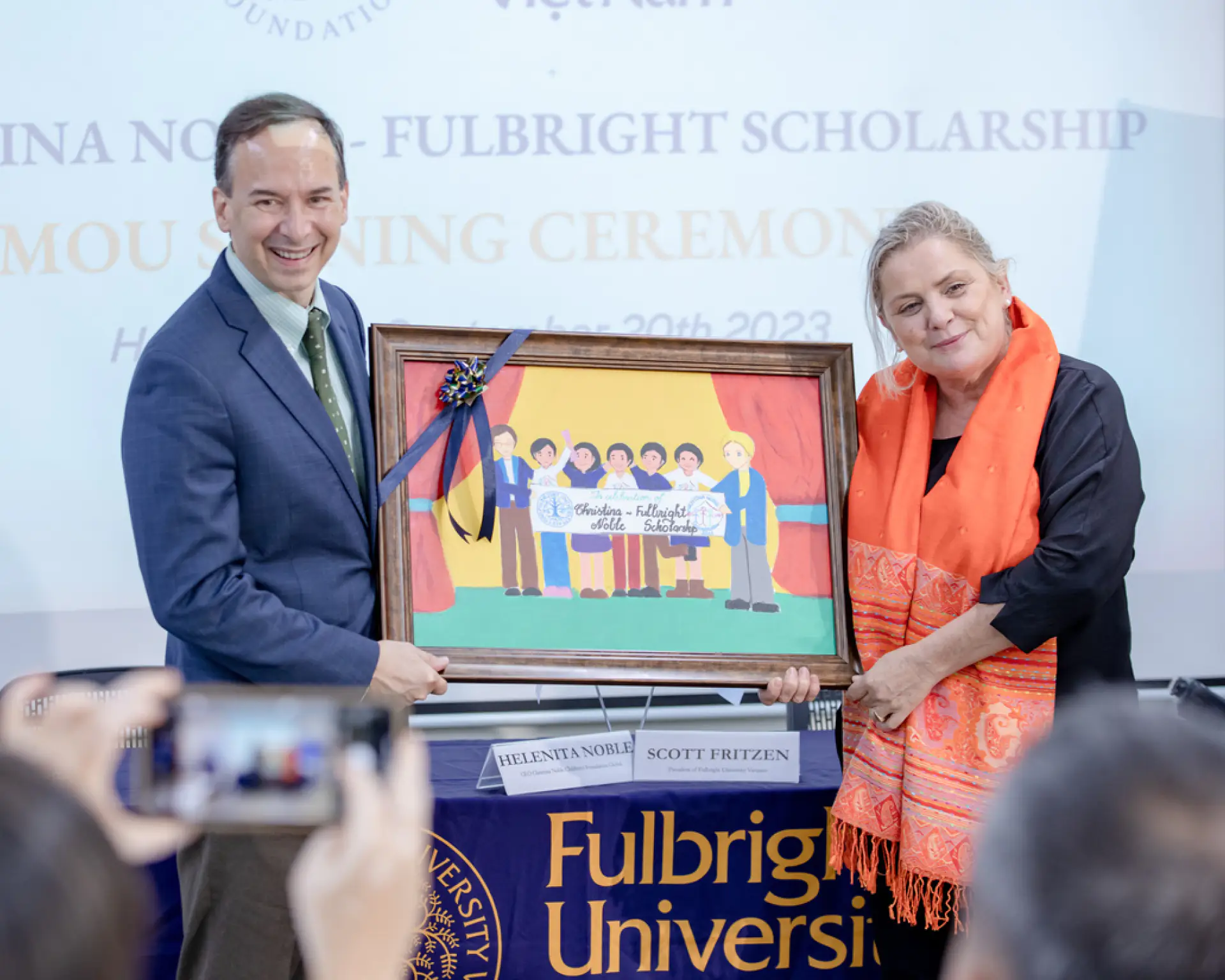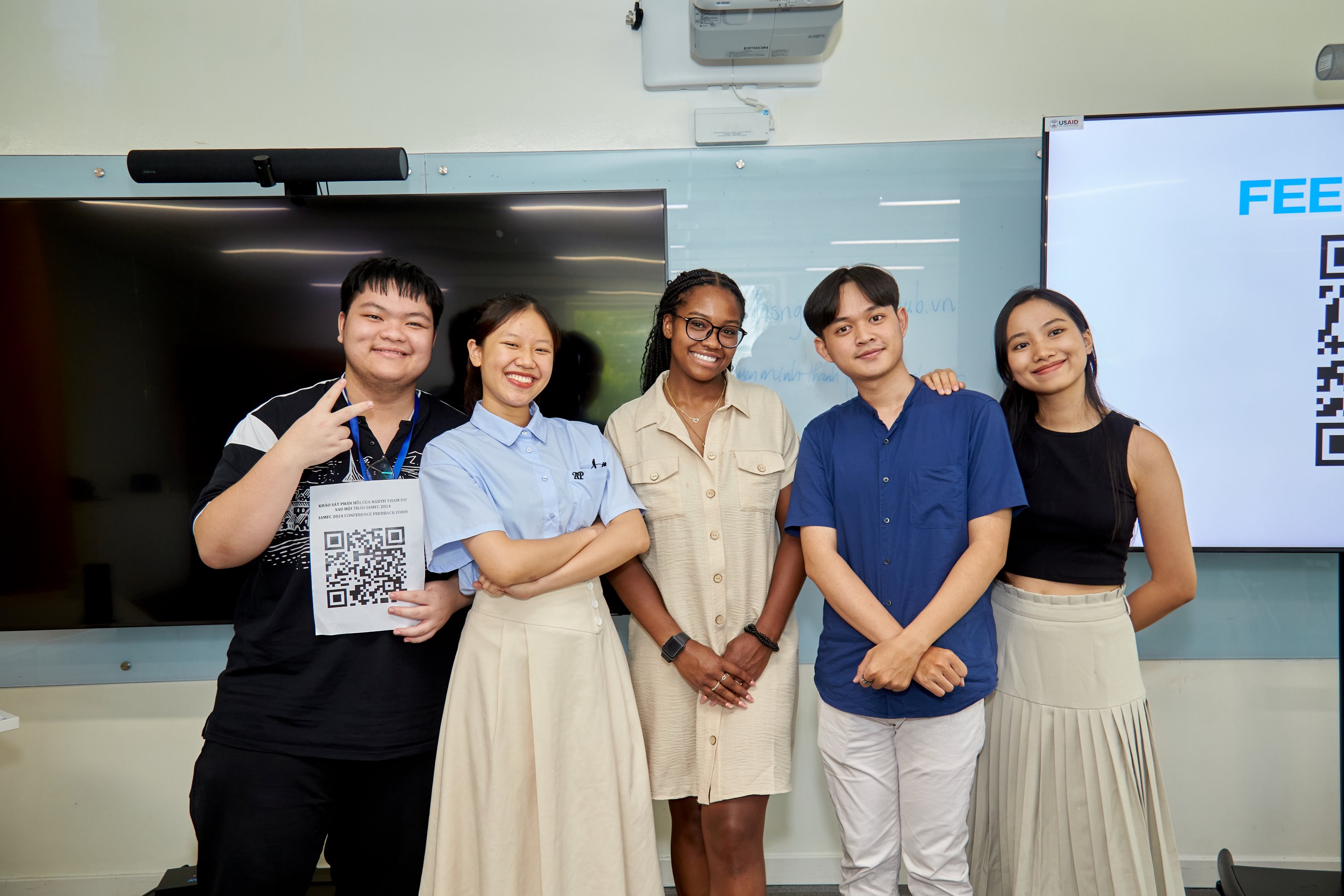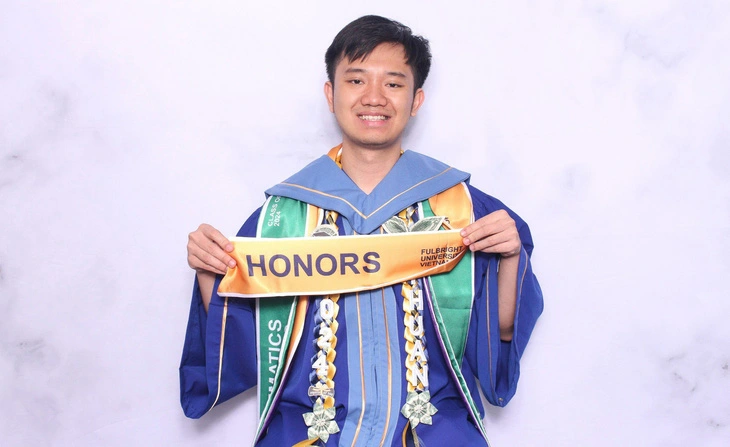
Did you know a diverse curriculum brings more potential advantages for your career development? Richard A. Detweile’s research indicates that 31-72% of students who engage in coursework outside their primary field of study may progress to management roles. So, what exactly is liberal education? Let’s delve into this topic with Fulbright in the article below.
Article Table of Contents
What is Liberal Arts Education?
Liberal arts is an educational philosophy focusing on developing well-rounded individuals who can adapt to change and pursue lifelong learning. Liberal education fosters learners’ critical thinking, creativity, problem-solving skills, and knowledge sharing.
The United States developed this prestigious educational model over centuries, and it is now widely applied in Europe and many Asian countries. According to USNews, some famous liberal arts colleges in the US include Williams College, Amherst College, Pomona College, Swarthmore College, and others. In Vietnam, Fulbright is the first university to apply the philosophy of liberal education to teaching.
What are the benefits of a Liberal Arts education?
Liberal arts education is a well-rounded, holistic approach to preparing for life and career. It started in ancient Greece and Rome to prepare free citizens for public life. It then focused on communication and reasoning skills (grammar, rhetoric, logic). In medieval times, four science subjects were added (arithmetic, geometry, music, astronomy). The goal was to create well-rounded, knowledgeable, and articulate individuals.
Today, liberal arts colleges offer various humanities, social sciences, natural sciences, and formal science subjects. Students can major in a specific area but still get exposure to other fields. This approach aims to develop well-rounded individuals with transferable skills. Liberal arts degrees are most common in the US, where colleges prioritize student-teacher interaction and a solid residential community. Below are the benefits of a liberal arts education.
Build life-long learning competencies
Many young people find listening to their inner voice challenging in a world marked by constant change and swift technological advancements. Therefore, liberal arts education allows students to explore their potential, interdisciplinary thinking, and lifelong learning skills. Aspiring learners then can understand their abilities and passions before choosing a field of study.
Encourage curiosity and individuality
Liberal arts education nurtures curiosity and creates an enabling environment for new ideas to flourish. We need to find out which new ideas will be interesting, bright, or valuable in the long term. The question, “What is the ultimate purpose of pursuing knowledge?” also puzzled many thinkers in Greece and China thousands of years ago. They concluded that the ultimate good is realizing full human potential. As for eminent thinkers like Aristotle and Confucius, this is intellectual reflection and virtue.
Develop critical thinking and creative skills
Liberal arts universities teach students essential problem-solving and critical-thinking skills through meaningful experiences and exposure. They emphasize how to think rather than what to think. Students learn to analyze, question, and connect concepts instead of merely memorizing facts and forgetting at the end of the semester. These skills, developed and reinforced throughout the college experience, are essential for innovating and influencing real change in the world.

The liberal arts program at Fulbright helps students develop critical thinking and creative problem-solving skills in their future careers. (Source: Fulbright)
Develop meaningful relationships
One of the most essential reasons to pursue a liberal arts degree is to form meaningful relationships within a community of people who share similar interests yet are also different. Despite your lecturers and classmates coming from various backgrounds and having diverse life experiences, everyone will be dedicated to learning more about themselves and the world around them.
Whether meeting a friend for coffee before class or organizing a trip overseas with a classmate, developing a strong sense of community may make completing a four-year degree worthwhile.
Attract employers with your Liberal Arts Degree
When applying to college, you will realize that providing your academic background is only one requirement. Colleges look for well-rounded individuals who have participated in community service, the arts, sports, student government, and leadership development. Similarly, employers seek well-rounded, intellectual individuals who can solve problems, think critically, and work efficiently.
The Singapore Graduate Employment Survey found that 93% of Yale-NUS students in 2017 secured jobs within six months of graduation. Meanwhile, a graduate employment survey conducted among more than 11,000 new graduates from NUS, NTU, and SMU showed that the employment rate was only 88.9%.
Why should you choose a Liberal Arts Education at Fulbright University Vietnam?
Fulbright University Vietnam is Vietnam’s first independent, not-for-profit, liberal arts university. Fulbright offers undergraduate programs in Social Sciences, Science and Engineering, Mathematics and Computing, Arts and Humanities, and a graduate program in Public Policy.
Founded on a Vietnamese-American partnership, Fulbright employs a pedagogical approach based on American traditions of rigorous liberal arts education while remaining firmly rooted in Vietnam’s culture and heritage. With a student-centered orientation, Fulbright aims to help students realize their potential and become fearless individuals with the courage to lead the future of Vietnam and the world.

Fulbright’s curriculum and academic environment are student-centered, respecting each individual’s unique values. (Source: Fulbright)
Today’s world is full of volatility, uncertainty, complexity, and ambiguity, requiring people to constantly learn and adapt to keep up. A university degree with specialized skills is no longer the “passport” that guarantees employment as it once did. According to statistics, 80% of future jobs will differ from today’s, increasing the need for learning and adaptive skills. Liberal arts education aims to develop essential 21st-century skills such as complex problem-solving, critical thinking, and creativity. Instead of focusing on narrow specializations, liberal arts education encourages students to explore multiple disciplines, expand their knowledge, and practice independent thinking. The training program at Fulbright University is a typical example of the liberal arts education model. Fulbright students are encouraged to study interdisciplinary, regardless of their major. For example, computer science students need to understand humanities, design, and brain science; engineering students need to grasp art, critical thinking, and empathy; and literature students need to comprehend science, technology, and information.
The first year at Fulbright begins with the Core and Curriculum, which consists of five essential courses. The program is designed to create an equal learning environment for students from all starting points, helping them discover their strengths and potential. The Core Curriculum challenges students to develop critical thinking skills, apply specialized knowledge, and solve problems effectively. Students will also integrate Elective/Exploratory courses to expand in various fields.
At the end of their second year, students choose the major(s) they want to pursue from the 11 options Fulbright offers. Fulbrighters can also pursue a double major to combine interests in different fields. Under the guidance of distinguished lecturers with PhDs from leading universities worldwide, students build a unique study program to thoroughly explore the field of their interest. Those who pursue a double major will graduate with two bachelor’s degrees and two transcripts. Students pursuing one major and one minor will receive a bachelor’s degree in their major and a diploma supplement that includes information about their minor.
Fulbright welcomes individuals who demonstrate academic depth and breadth, along with one of the following characteristics:
- Intellectual curiosity: Open-minded and willing to listen to new ideas and diverse perspectives; welcoming rigorous arguments and compelling evidence.
- Pioneering spirit: Eager to seek new challenges; creatively solve problems; and unafraid to learn from mistakes.
- Care for others: Respectful of diversity; be honest, responsible, emotionally mature, and motivated to create a better community.
Fulbright University Vietnam offers a need-based Financial Aid Program, believing that every student deserves access to education, regardless of family background or social status. This grant does not require repayment and is based solely on the financial circumstances of the applicant’s family. Fulbright offers six ranges of financial aid: 30%, 50%, 70%, 80%, 90%, and 100%. The maximum package of financial assistance can cover up to 100% of tuition for four years of study, including housing fees and living expenses. Tuition fees for bachelor’s programs are updated annually; further detailed information can be found on the school’s website.

Fulbright University Vietnam and the Christina Noble Children’s Foundation signed a memorandum of understanding (MoU) to establish the Christina Noble – Fulbright Scholarship. (Source: Fulbright)
Register for major consulting at Fulbright to excel in liberal education and start creating your future now:
- Learn about scholarships: https://fulbright.edu.vn/tuition-and-aid-scholarships/
- Learn about financial support: https://fulbright.edu.vn/tuition-and-aidfinancial-aid/
- Learn about how to apply to Fulbright: https://fulbright.edu.vn/vi/apply-to-us/
- Receive direct consultation and experience Fulbright with us: https://fulbright.edu.vn/contact-us/
A liberal arts education represents both a pedagogical approach and a personal journey to leverage individual potential. Seize this opportunity to evolve into global citizens who are versatile and dedicated to fostering positive values that enrich society.








